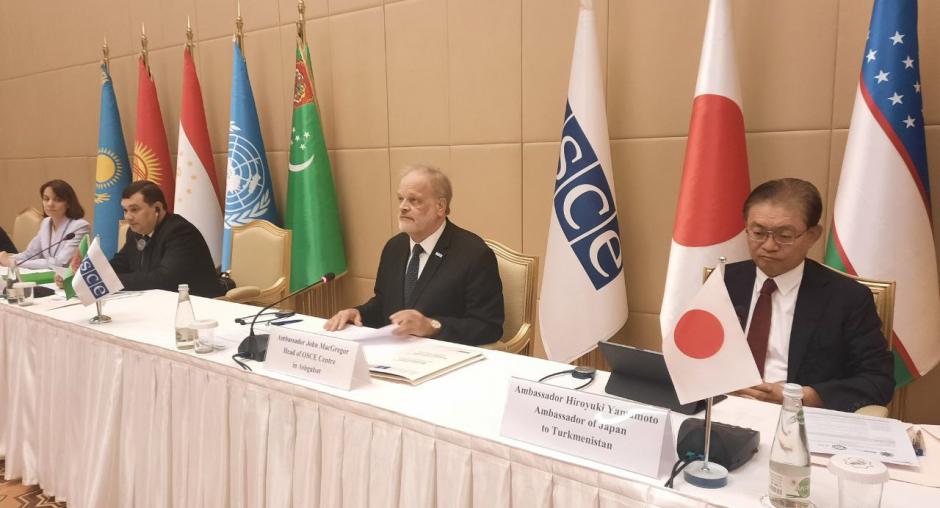Protecting critical infrastructure from threats in focus of OSCE-organized regional workshop in Turkmenistan

An OSCE-organized regional training workshop on countering terrorism with a particular focus on protecting critical infrastructures such as hydropower systems, energy grids and transport lines started on 14 June 2022. The three-day online and in person event aimed to support building resilience against threats to the critical infrastructure and served as a platform for discussing measures of enhancing the protection of critical infrastructure.
The workshop is a good example of multi-stakeholder partnership, as it was organized by the OSCE Centre in Ashgabat with support from the UN Regional Centre for Preventive Diplomacy for Central Asia and the United Nations Office of Counter-Terrorism (UNOCT) as well as the OSCE Secretariat’s Border Security and Management and Action against Terrorism Units.
The event brought together around fifty officials from relevant border and security agencies of the five Central Asian countries.
In his welcoming speech, John MacGregor, Head of the OSCE Centre in Ashgabat noted: “In 2007, the OSCE Ministerial Council issued a Ministerial Statement on Supporting the United Nations Global Counter-Terrorism Strategy which encouraged to step up all efforts to improve the security and protection of particularly vulnerable targets, such as infrastructure and public places.”
“Over the last three decades, the Central Asian countries have developed numerous critical infrastructures, and protecting them is crucial for the region’s stability, security and prosperity,” added MacGregor. “Through awareness raising and information sharing on protecting critical infrastructures, the Centre seeks to further promote regional co-operation and provide a platform for gaining insights into best practices of other states.”
Special Representative of the UN Secretary-General for Central Asia, Head of the United Nations Regional Centre for Preventive Diplomacy for Central Asia, Ambassador of Japan to Turkmenistan and UNOCT Regional Coordination Officer also made opening speeches.
The international experts, OSCE and UNOCT experts emphasized the need for compliance of policies and measures to protect critical infrastructure in line with OSCE commitments and relevant UN Security Council resolutions on protection of critical infrastructure against terrorist acts as well as the UN Global Counter-Terrorism Strategy. The experts presented cascading detrimental effects of critical infrastructure incidents, and underscored the need for putting adequate incident management mechanisms and processes in place to minimize the impact on the essential function in the event of deliberate terrorist attacks.
The participants discussed the core dimensions of critical infrastructure protection against terrorist attacks from both a national and cross-border perspective. Representatives from Central Asian countries presented their recommendations for topics of the next regional online training on protecting critical infrastructure from terrorist threats.
The workshop is organized within the framework of the Centre’s extrabudgetary multi-donor project “Strengthening State Border Service Capacities of Turkmenistan” and supported financially by the Government of Japan.
